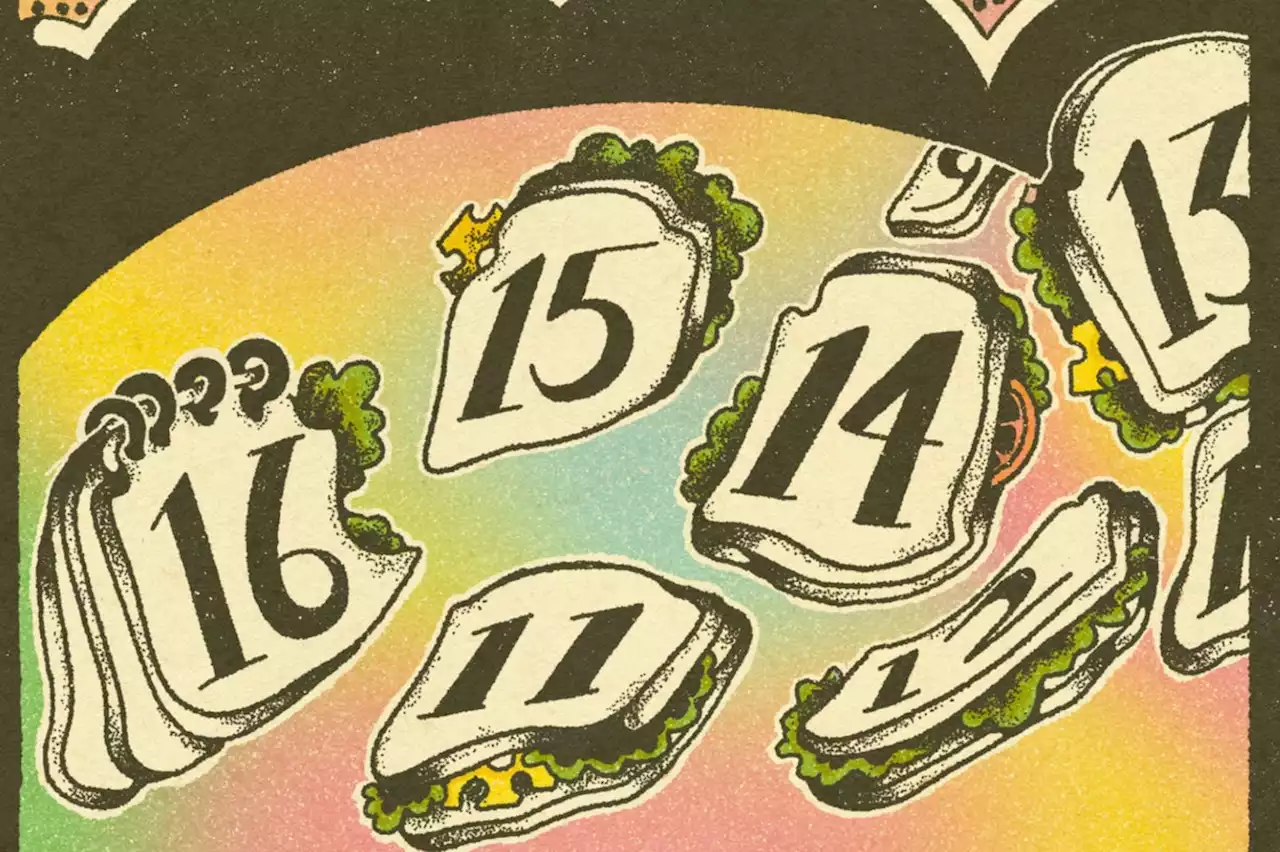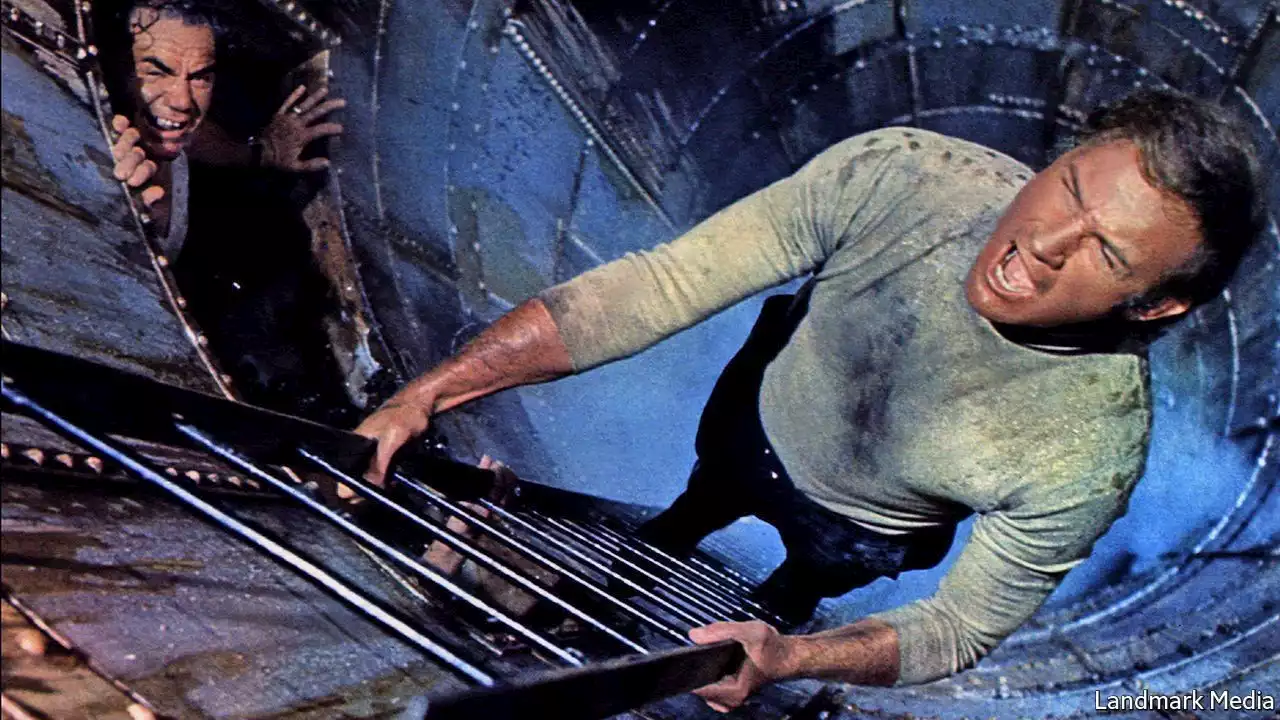“Our one provision against catastrophe and the cataclysm is to reassess it as a genre,” David Thomson writes in his new book: “Thus anxiety can be aestheticised”
scene of “Hiroshima Mon Amour”, Alain Resnais’s and Marguerite Duras’s romantic drama of 1959, radioactive dust falls on the naked limbs of two lovers. At first the residue is thick and grainy; then it becomes soft and shimmering, catching the light on biceps and shoulder blades. David Thomson, a film critic and historian, uses this unsettling evocation of nuclear fallout in the Japanese city on August 6th 1945 as the introduction to, and inspiration behind, his cultural history of catastrophe.
It is a grim subject, but Mr Thomson is a wry, argumentative and darkly humorous guide. His style is consciously filmic, at times cutting between ideas and perspectives at speed and at others allowing digressions to continue at length. He refers to a panoply of disasters both imagined and real, including asteroids, earthquakes, extinctions, covid-19, climate change and political revolution.
The 1960s and 1970s proved a turning-point in the transmogrification of catastrophe to spectacle, Mr Thomson argues, as Hollywood released a tranche of disaster blockbusters. In “Planet of the Apes”, “The Poseidon Adventure” and “The Towering Inferno”, cinemagoers could witness destruction on an epic scale—it proved a welcome distraction, he suggests, from the ongoing footage of conflict in Vietnam to which Americans had become numbed.
“Disaster Mon Amour” is an enjoyable, if scattergun, read. It is not a sustained analysis of the origins or psychology of disaster in mass media, opting instead for piquant observations and opinions. The book is made up of loosely structured chapters on a variety of themes; nuggets of cinematic description and analysis are interrupted by less lustrous passages about the experience of living through covid-19.
It is human nature to create art in defiance of tragedy and force majeure. People look to writers, film-makers, poets and artists to salvage meaning out of chaos and to reclassify disaster as a thing of beauty. “Our one provision against catastrophe and the cataclysm is to reassess it as a genre,” he writes: “Thus anxiety can be aestheticised.”
Canada Latest News, Canada Headlines
Similar News:You can also read news stories similar to this one that we have collected from other news sources.
 Why Does No One Believe My ADHD Diagnosis?“People keep trying to reassure me by saying, ‘You don’t have ADHD, you just have young kids,’ or ‘Don’t we all have ADHD these days?’”
Why Does No One Believe My ADHD Diagnosis?“People keep trying to reassure me by saying, ‘You don’t have ADHD, you just have young kids,’ or ‘Don’t we all have ADHD these days?’”
Read more »
 Jones Jr talks up Bellew fight and explains why he would win - but Brit not interestedBoxing legend Roy Jones Jr has talked up an exhibition fight against Tony Bellew, cheekily insisting he would have the edge over the Brit. The American, 53, retired from professional boxing in 2018…
Jones Jr talks up Bellew fight and explains why he would win - but Brit not interestedBoxing legend Roy Jones Jr has talked up an exhibition fight against Tony Bellew, cheekily insisting he would have the edge over the Brit. The American, 53, retired from professional boxing in 2018…
Read more »
 Sue Gray: why do we fetishise older women in positions of authority?Her name has spawned thousands of memes, but would society be so patronising if a man was in charge of the Downing Street partygate investigation, asks Claire Cohen?
Sue Gray: why do we fetishise older women in positions of authority?Her name has spawned thousands of memes, but would society be so patronising if a man was in charge of the Downing Street partygate investigation, asks Claire Cohen?
Read more »
 ‘Why I’ve eaten at out every night for six months’Most Londoners were raring to go to a restaurant once restrictions were finally lifted. But not many of us simply gave up cooking at home...
‘Why I’ve eaten at out every night for six months’Most Londoners were raring to go to a restaurant once restrictions were finally lifted. But not many of us simply gave up cooking at home...
Read more »
 Why Boris Johnson Could Lose His Job Over a Birthday PartyThis could be the end for British Prime Minister Boris Johnson who faces growing calls for his resignation over COVID-lockdowns parties
Why Boris Johnson Could Lose His Job Over a Birthday PartyThis could be the end for British Prime Minister Boris Johnson who faces growing calls for his resignation over COVID-lockdowns parties
Read more »
